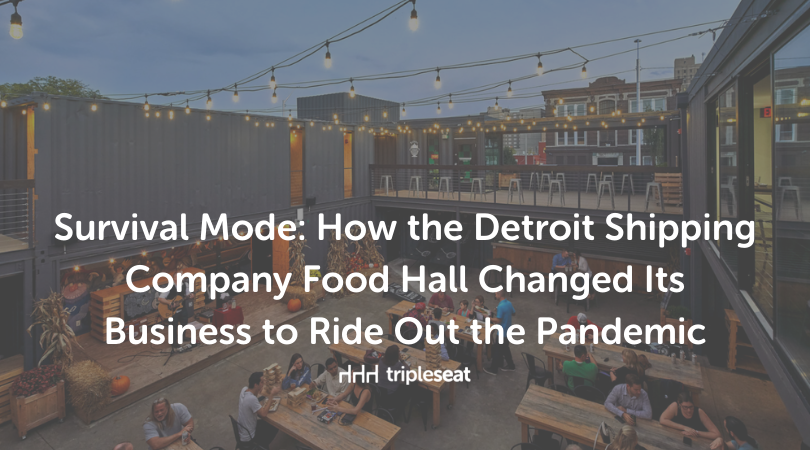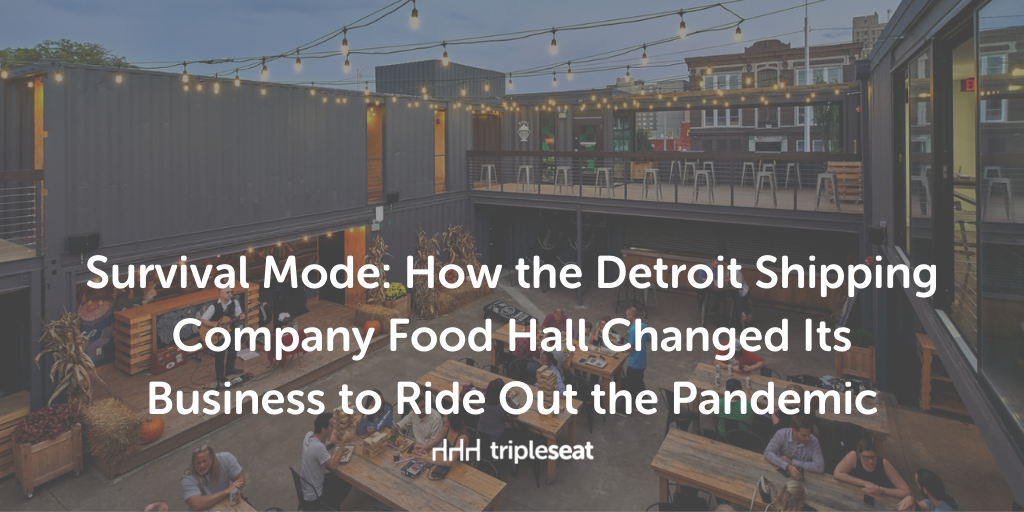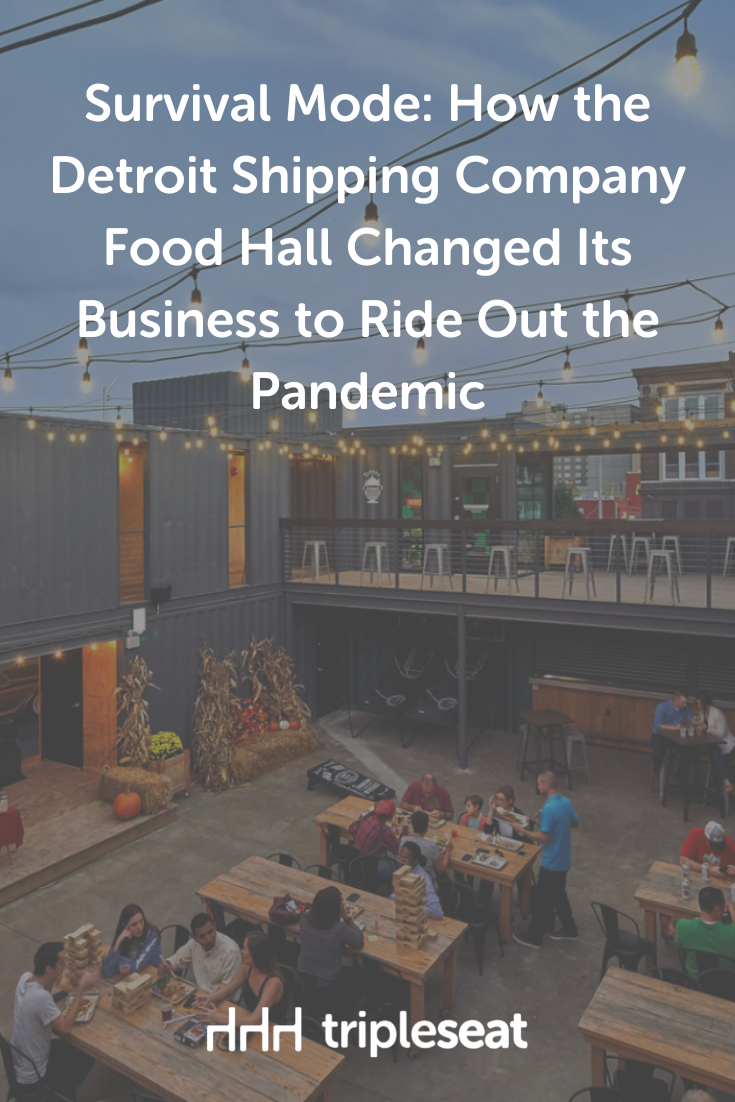Survival Mode: How the Detroit Shipping Company Food Hall Changed Its Business to Ride Out the Pandemic
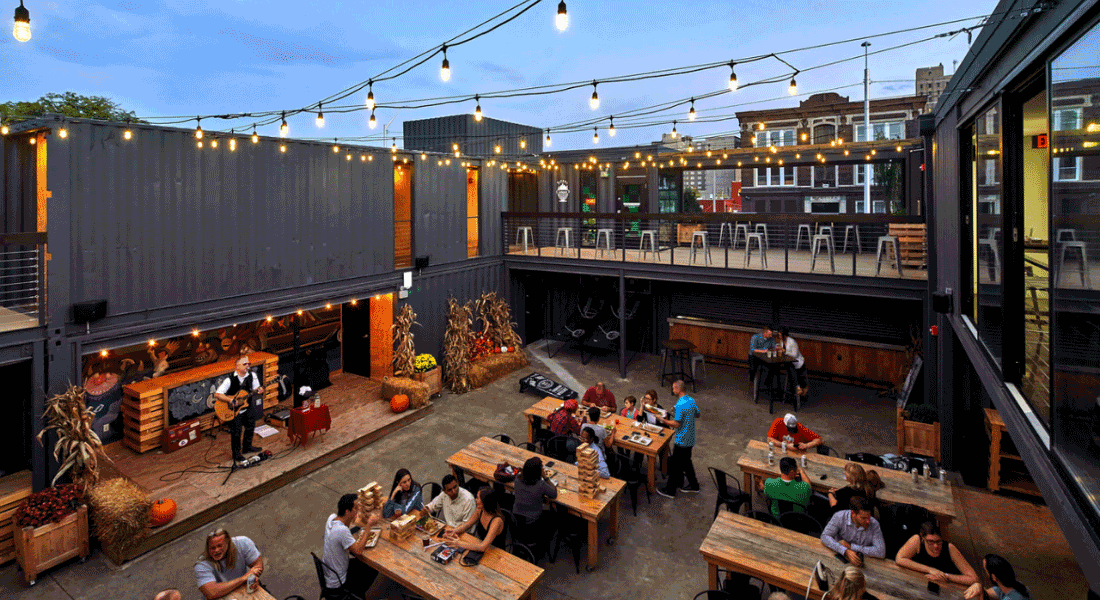
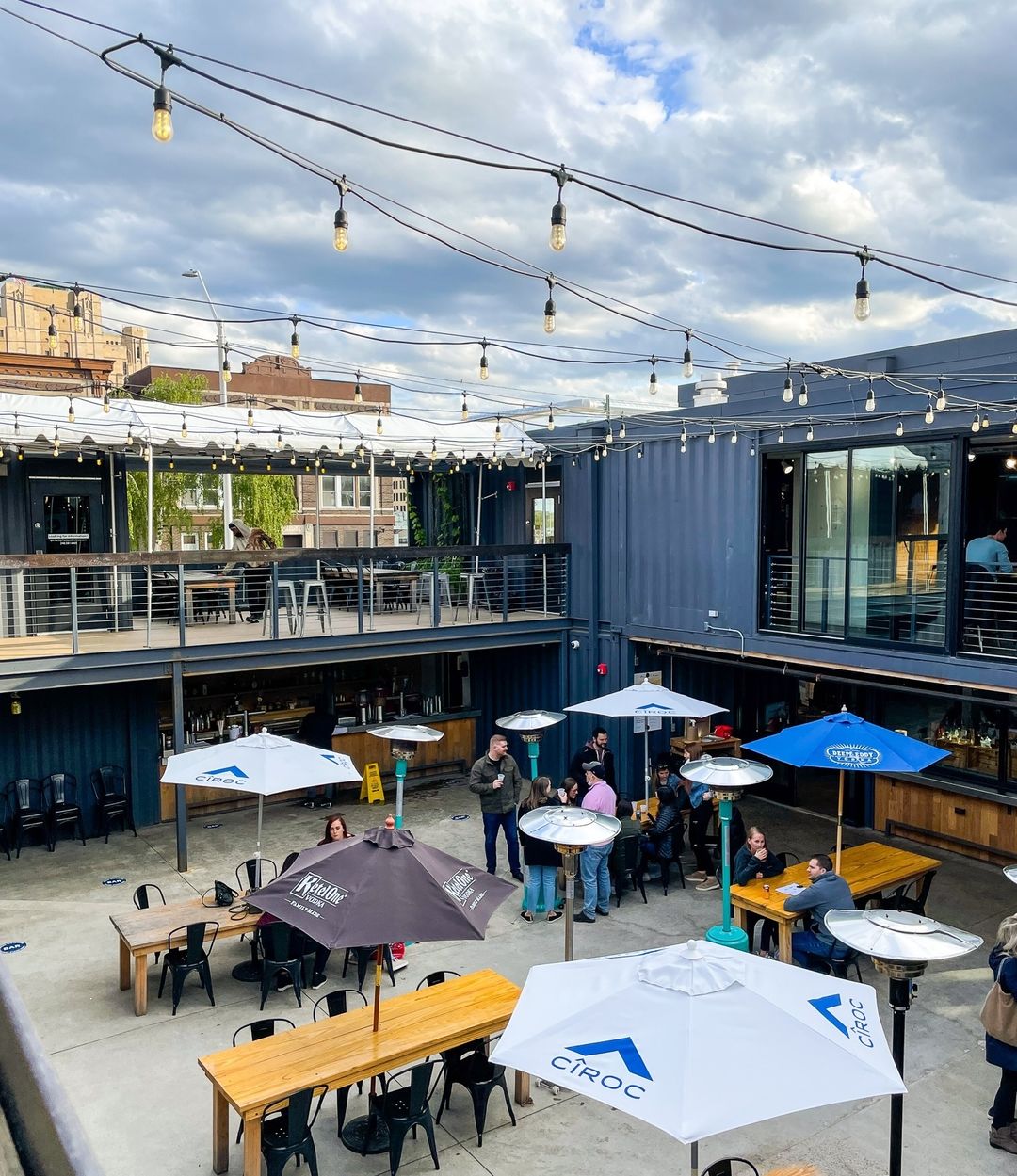 What a wild ride 2020 was. From our personal lives to our careers and so much more, 2020 was wrought with disaster after disaster.
What a wild ride 2020 was. From our personal lives to our careers and so much more, 2020 was wrought with disaster after disaster.
Who knew that one year could feel at the same time like a whirlwind and like it took 10 years to pass. Or that trends would revolve around terms like “new normal” and “unprecedented.” But, if there’s one single industry that felt these things a little more than others, it’s the hospitality industry.
From states of emergency to shutdowns to opening at limited capacity, back to shutdown, and around again, the hospitality industry sought every high and felt every single low. Yet all of those hardships and pressures didn’t break the industry; instead, they forced it to bend and adjust and show just how resilient and resourceful it is.
One specific hospitality business located in Detroit is a shining example of just how creative and strong our industry is. Detroit Shipping Company, a 3-year-old food hall and beer garden in Detroit’s Cass Corridor neighborhood, took pivoting to new heights throughout the entire pandemic to ensure they could still serve their community. I was lucky enough to chat with Detroit Shipping Company’s operators earlier this month, and they shared with me some of the ways the pandemic taught them to open their eyes to new ways of handling business.
First, let’s get to know the venue itself. Detroit Shipping Company is essentially a food hall made out of shipping containers that currently hosts six diverse food vendors, along with the main bar and, during the summer, an outdoor Booze Bus (which may just be the best name ever for a food truck bar). Before the pandemic, you would enter the food hall and order directly from whichever restaurant you chose, sit wherever you wanted, and go up freely for more food and drinks whenever you pleased. They also hosted live music and rented the space out for weddings, corporate events, birthday parties, and much more. In addition to their indoor space, they had a 10,000 square foot parking lot that at the time was used for, well, parking.
Of course, as March 2020 rolled around, and it became clear that they would not be able to conduct business as usual, they struggled at first to find their footing. How could a venue known for crowds and open seating operate during a pandemic? Jonathan Hartzell, a Detroit Shipping Company founder, as well as a partner at Detroit Rising Development, a development and construction group that specializes in the rehabilitation and revitalization of Detroit, told me that he lost a lot of sleep during the few days leading up to the official shutdown of all non-essential businesses. He didn’t want to put his staff and his community at risk. So when the announcement came from the Governor of Michigan on March 14, 2020, that all non-essential businesses were to shut down immediately, his first feeling was relief. He had his answer. But then reality set in. He still had a business to run and restaurants to support.
 Fast forward to May of 2020. Detroit Shipping Company’s team knew they had to reopen at some capacity but also knew it wouldn’t be easy. Before the pandemic, each restaurant had its own point of sale system and own system for ordering. On May 20, two of the six restaurants reopened with a combined POS system for curbside takeout only. By June 12, they were able to reopen at half capacity for in-house dining. They hired back two front-of-the-house staff and two employees in each kitchen. By July of 2020, four of the six restaurants had reopened using their own POS systems once again, and by August of 2020, five were. And remember that 10,000 square foot parking lot I mentioned earlier? Well, they turned that into a substantial open-air seating area so they could accommodate more guests.
Fast forward to May of 2020. Detroit Shipping Company’s team knew they had to reopen at some capacity but also knew it wouldn’t be easy. Before the pandemic, each restaurant had its own point of sale system and own system for ordering. On May 20, two of the six restaurants reopened with a combined POS system for curbside takeout only. By June 12, they were able to reopen at half capacity for in-house dining. They hired back two front-of-the-house staff and two employees in each kitchen. By July of 2020, four of the six restaurants had reopened using their own POS systems once again, and by August of 2020, five were. And remember that 10,000 square foot parking lot I mentioned earlier? Well, they turned that into a substantial open-air seating area so they could accommodate more guests.
Of course, it wasn’t the operating style they had been accustomed to. In order to comply with the state’s rules that limited the flow of customers and social distancing and mask requirements, they restructured their front-of-the-house operations. Instead of their customers walking up to each restaurant to order what they wanted and then sit where they pleased, they offered table service with a host at the front door who seated guests. They also implemented food runners who would deliver customer orders to the tables. In addition, they used QR codes for menus, and A/B tested a list of adjustments just to find the right fit for their venue. In the end, they were able to have a very successful summer in 2020 because they followed all of the CDC guidelines and were nothing but transparent to their customers. The community appreciated the fact that they were knowledgeable and kept up with precautionary measures that kept them safe.
 Indeed, it wasn’t all rainbows and fairy tales for Detroit Shipping Company. There were a ton of costs associated with the pivots they made. First, they spent over $35,000 building the open space seating area, then another $30,000 winterizing it. Not to mention the soaring costs of personal protective equipment and the additional labor costs for front-of-the-house staff. But even with all of these extra costs they incurred in 2020, they are beginning to see their return on investment. For example, April of 2021 was on par with their average sales before the pandemic. They also saw their highest revenue day on record for one of their restaurants at the start of 2021. And in March of 2021, they saw a significant uptick in leads for 2022 private event inquiries.
Indeed, it wasn’t all rainbows and fairy tales for Detroit Shipping Company. There were a ton of costs associated with the pivots they made. First, they spent over $35,000 building the open space seating area, then another $30,000 winterizing it. Not to mention the soaring costs of personal protective equipment and the additional labor costs for front-of-the-house staff. But even with all of these extra costs they incurred in 2020, they are beginning to see their return on investment. For example, April of 2021 was on par with their average sales before the pandemic. They also saw their highest revenue day on record for one of their restaurants at the start of 2021. And in March of 2021, they saw a significant uptick in leads for 2022 private event inquiries.
With all of the stress of pivoting and rearranging their business model, the pandemic did teach them some valuable lessons. They are more in tune with what their community wants and values, and they cherish the fact that they were able to not only stay afloat during a time when most hospitality businesses were drowning but they were able to keep their customers safe while doing it. They take these lessons and continue to pivot their business even today. A few weeks ago, they introduced The Shop at Detroit Shipping Company, a rent-free rotating retail space for black-owned local businesses to help support their community and local entrepreneurs.
For more information on Detroit Shipping Company and the businesses they support, you can visit their website or check them out on Instagram and Facebook.
Editor’s Note: This article first appeared in the Summer 2021 issue of Seated magazine.
